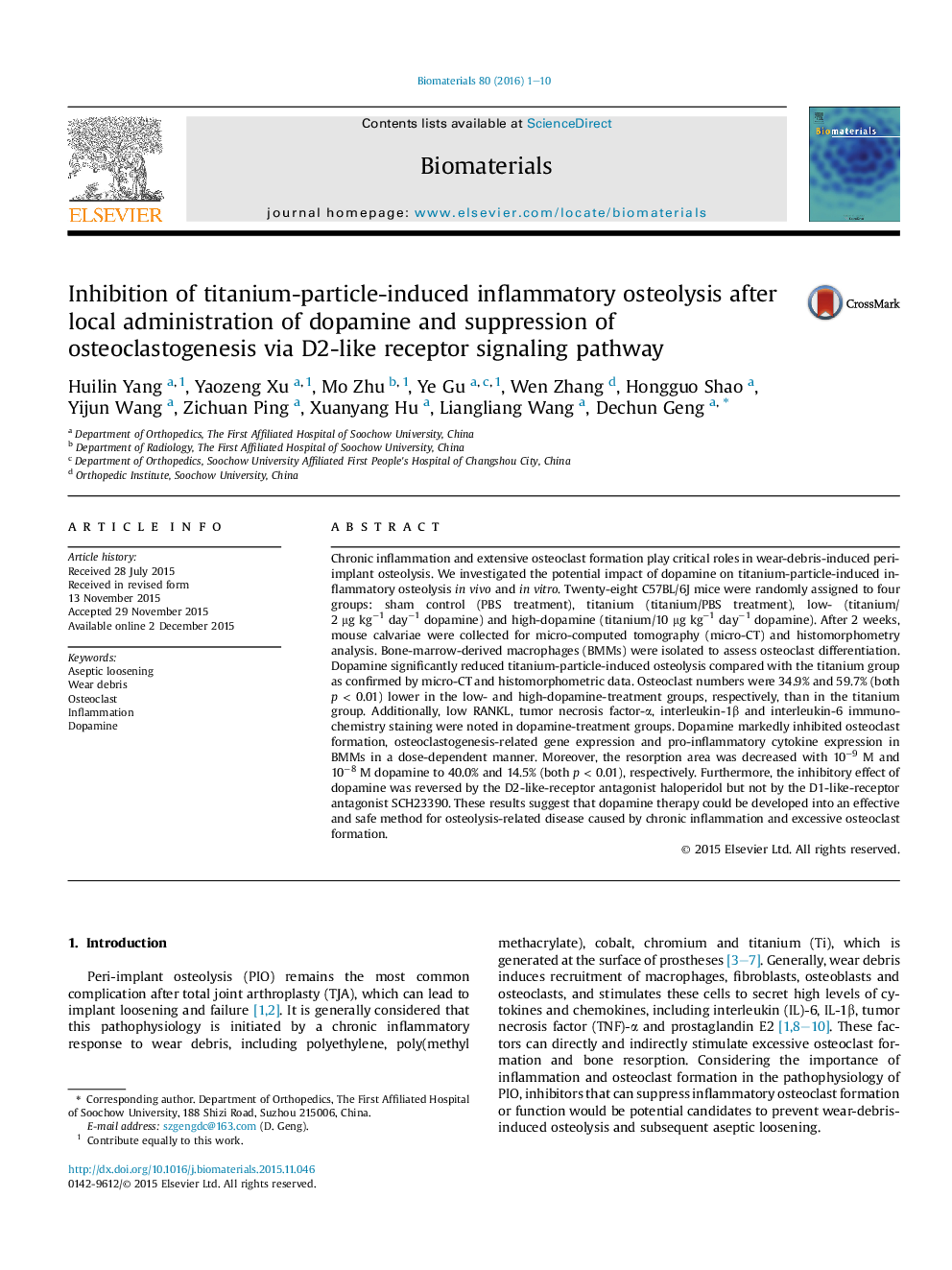| Article ID | Journal | Published Year | Pages | File Type |
|---|---|---|---|---|
| 6485184 | Biomaterials | 2016 | 10 Pages |
Abstract
Chronic inflammation and extensive osteoclast formation play critical roles in wear-debris-induced peri-implant osteolysis. We investigated the potential impact of dopamine on titanium-particle-induced inflammatory osteolysis in vivo and in vitro. Twenty-eight C57BL/6J mice were randomly assigned to four groups: sham control (PBS treatment), titanium (titanium/PBS treatment), low- (titanium/2 μg kgâ1 dayâ1 dopamine) and high-dopamine (titanium/10 μg kgâ1 dayâ1 dopamine). After 2 weeks, mouse calvariae were collected for micro-computed tomography (micro-CT) and histomorphometry analysis. Bone-marrow-derived macrophages (BMMs) were isolated to assess osteoclast differentiation. Dopamine significantly reduced titanium-particle-induced osteolysis compared with the titanium group as confirmed by micro-CT and histomorphometric data. Osteoclast numbers were 34.9% and 59.7% (both p < 0.01) lower in the low- and high-dopamine-treatment groups, respectively, than in the titanium group. Additionally, low RANKL, tumor necrosis factor-α, interleukin-1β and interleukin-6 immunochemistry staining were noted in dopamine-treatment groups. Dopamine markedly inhibited osteoclast formation, osteoclastogenesis-related gene expression and pro-inflammatory cytokine expression in BMMs in a dose-dependent manner. Moreover, the resorption area was decreased with 10â9 M and 10â8 M dopamine to 40.0% and 14.5% (both p < 0.01), respectively. Furthermore, the inhibitory effect of dopamine was reversed by the D2-like-receptor antagonist haloperidol but not by the D1-like-receptor antagonist SCH23390. These results suggest that dopamine therapy could be developed into an effective and safe method for osteolysis-related disease caused by chronic inflammation and excessive osteoclast formation.
Related Topics
Physical Sciences and Engineering
Chemical Engineering
Bioengineering
Authors
Huilin Yang, Yaozeng Xu, Mo Zhu, Ye Gu, Wen Zhang, Hongguo Shao, Yijun Wang, Zichuan Ping, Xuanyang Hu, Liangliang Wang, Dechun Geng,
